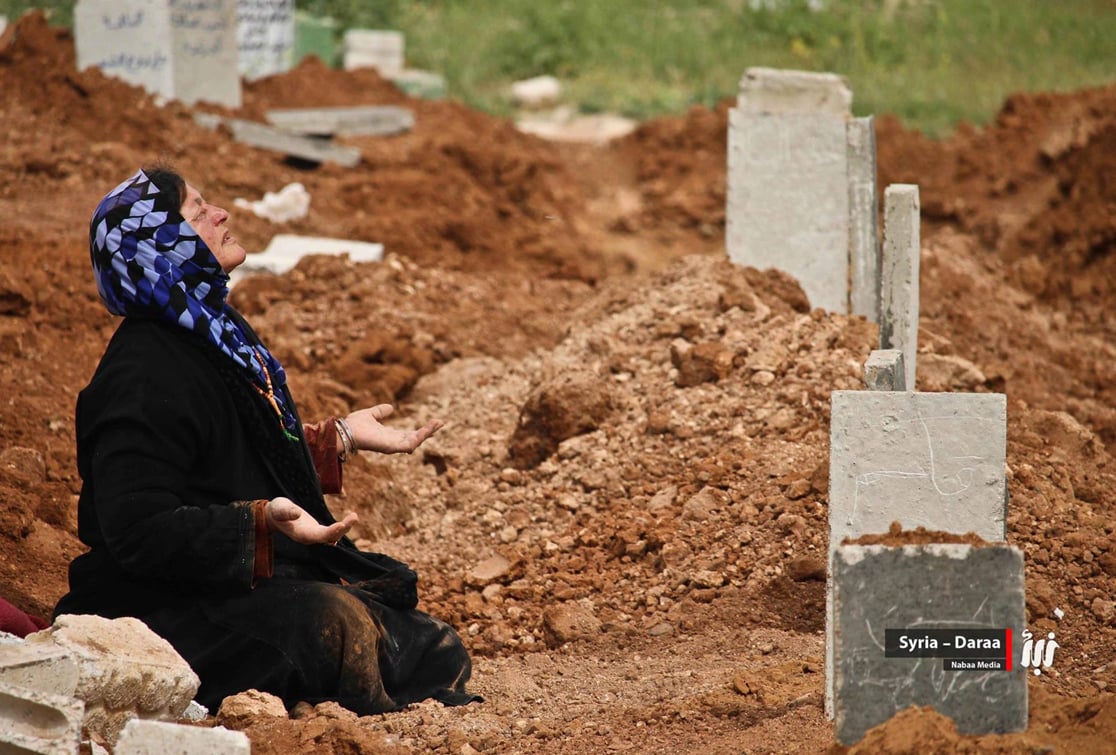The Syrian Regime is still Dropping Barrel Bombs despite the De-Escalation Agreement

SNHR has published its monthly report on the use of barrel bombs by Syrian regime forces for the month of May.
The report highlights the de-escalation agreement in Syria, which commenced on May 6, 2017, after it was announced at the end of the fourth round of Astana talks which was held between representatives from Russia, Turkey, and Iran as the states that sponsored Ankara Ceasefire agreement. The agreement outlined four major de-escalation areas, where a cessation of combat operations will take place in these areas, humanitarian aids will be delivered, and IDPs residents will be allowed a return to these areas. These areas, as specified by the agreement, are: Idlib governorate and the surrounding areas (parts of Aleppo, Hama, and Latakia governorates), northern Homs governorate, Eastern Ghouta, and parts of Daraa and al Quneitra governorates in the southern parts of Syria. It was provided that an expert committee would accurately assign the borders of said zones at a later date.
The report notes that since the agreement went into effect, these areas saw a relatively noticeable and good decrease in killing rates compared with the previous months since March 2011. Nonetheless, breaches didn’t stop, mainly by the Syrian regime, who is seemingly the party that would be most affected should the ceasefire go on, and in particular extrajudicial killing crimes and, more horrendously, deaths due to torture, and use of barrel bombs. This strongly asserts that there is a ceasefire of some sort on the table, but the crimes that the international community -especially the Russian, Turkish, and Iranian sponsors- won’t see are still going on as nothing has changed.
In May 2017, we recorded a drop in the numbers of barrel bombs dropped by Syrian regime by 56% compared to last April, while the same percentage didn’t exceed 16% when compared to what was documented in last March.
The report notes that a barrel bomb is a distinctively indiscriminate weapon with huge destructive impact. Therefore, the barrel bomb doesn’t only kill civilians but also terrorizes and displaces residents in light of the destruction it creates. Dropping barrel bombs from warplanes in this savage and primitive manner amount to a war crime. Every barrel bomb dropped is considered a war crime.
Furthermore, the report notes that barrel bombs were used notably for the first time on Monday 1 April 2012 against the residents of Salqein city. Also, the barrel bomb is a locally-made weapon which is used by Syrian regime forces due to the fact that it is costs notably less than missiles and it has a huge destructive impact. Barrel bombs are a distinctively indiscriminate weapon that even if it killed an armed man, this would be an accident as 99% of the victims killed by barrel bombs are civilians, and the percentage of women and children victims varies between 12% to 35% in some cases.
Vitaly Churkin, the former Russian representative to the United Nations, said that the Syrian regime has stopped using barrel bombs. However, the daily monitoring and documentation conducted by SNHR prove, beyond any doubt, otherwise as the Syrian regime continues to kill and destroy Syria by dropping hundreds of barrel bombs.
The report documents that no less than 412 barrel bombs were dropped in the month of May 2017, most of these barrel bombs were dropped in Aleppo governorate, followed by Hama, then Daraa, and then Damascus suburbs governorate. Barrel bomb attacks resulted in the killing of 30 including 19 children and three women (adult female)
The report emphasizes that the Syrian government has, beyond any doubt, violated Security Council Resolution 2139, and used barrel bombs in a widespread and systematic manner and violated, through the crime of murder, Article 7 of the Rome Statute in a widespread and systematic manner as well, which constitutes crimes against humanity. Additionally, the Syrian government violated many rules of the international humanitarian law by perpetrating tens of crimes that amount to war crimes which manifested in the indiscriminate and random bombardment that was also disproportionate due to the use of excessive force.
The report calls on the Security Council to insure the serious implementation of its Resolutions. These Resolutions have become merely words and, thus, the Security Council has lost all of its credibility and purpose.
Also, the report demands that an arms embargo is imposed on the Syrian government, and all those who are supplying the Syrian government with funding and weapon should be prosecuted considering the risk that these weapons might be used to commit crimes and serious violations of human rights.


